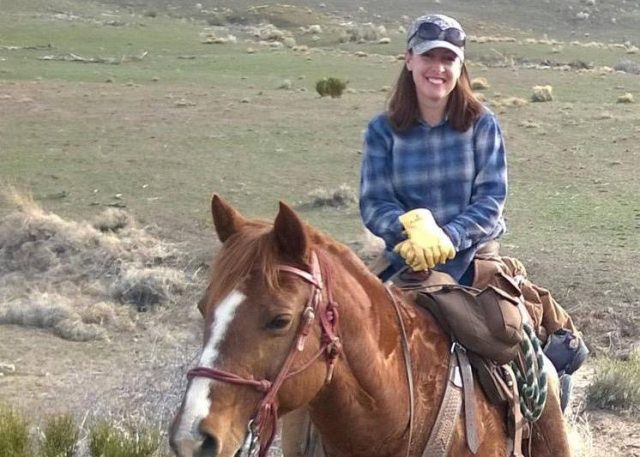
#TBT: Let’s Discuss — Good Days and Bad Days
Maria Wachter makes a case for learning to let stuff go.
The older I get, the more I can control my moods. I’m more even-tempered — I also know when I’m about to boil over and have learned talk myself down. I know I have the ability to become a raging monster a few certain days each month, or when I’ve missed breakfast and am about to turn into a hangry hot mess. I know I lack patience and get extremely frustrated at stupid stuff: traffic, long lines in the grocery store, a horse or mule that won’t stand still when I’m trying to shoe him and so on.
But I can catch myself now before I get red-faced and dream of punching a hole into a wall: after 35 years on this planet, I know myself well enough and I know how my moods can change so quickly, that now I can see myself from a different point of view. I can see myself acting like a total turd, and because of this I can stop it before it happens.
Humans are a very moody species — I get it, I’m one of them, like I just described! This being said, we humans know we have good days and bad days, so why do we expect our horses to be 100% every day of the year? Why is it when I’m scrolling through my news feed, I see lots of friends and connections ready to lose their marbles because their horse was being a brat?
You buy a young horse and you want that horse to be as calm and gentle as your 25-year-old gelding? Your three-year-old stallion acted up in front of the judge and now you’re feeling let down? You got bucked off your four-year-old mare when she got spooked and now you’re ready to send her to the auction? Come on, people, wake up! What were you expecting?
We don’t expect our young children to make it through trying circumstances without losing their patience and pitching a fit — so why do we expect our animals to never lose it and be perfect at all times? Especially those young horses that cost a pretty penny — training included.
So I try not to take things so seriously. Sometimes the most trying of horses can be the best teachers to help us become more mindful. If you want something to act the same day in and day out, get a Breyer model. When you interact with your horse, just like when you interact with people, turn every situation into a learning experience. Make some memories, but never let your horse get under your skin. We all have good days and bad. Just remember to enjoy the ride!
Let’s discuss: when did you have some bad moments with your horse? What did you do to cope? How do you remind yourself to take a deep breath and keep some perspective in your horse life?








Leave a Comment